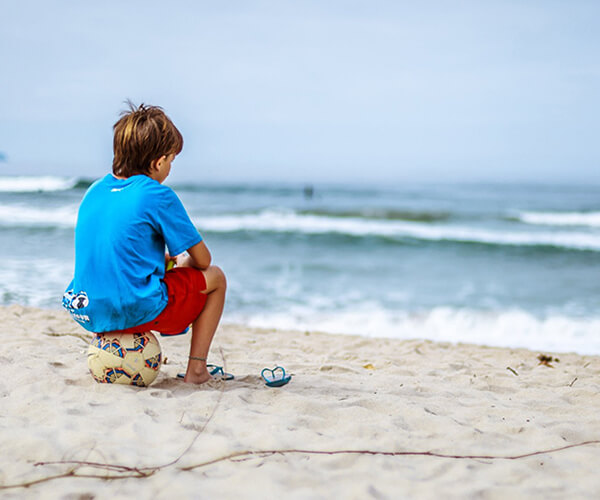
This is a question that I know parents of anxious kids can struggle with and not without reason. It’s understandable to worry about giving your child a label. Much of the fear of telling a child they have anxiety is that it will make them feel different or could have them thinking something is wrong with them. Other parents worry it will only add to their child’s anxiety and that the label will follow them through school and wherever they go in life.
Here’s the thing, and take it from me, I’m speaking from experience. Anxious kids can already feel like there is something very much wrong with them. Like they’re broken. Add to that lots of thoughts about feeling different, that nobody else understands what it’s like to be them and that there’s not much hope of things improving. It’s a pretty awful headspace to live in.
On the flip side, explaining to an anxious child that what they’re experiencing is very common, that it has a name, that it’s well understood and that there’s lots of ways to help them, that sounds to me like a true gift. That’s what I would have loved so much as an anxious kid. To be told that I wasn’t broken and that understanding my anxiety would help me to know how to manage it would have completely changed my life. ‘Anxious Kids’ is the book I dearly wish my parents and teachers had when I was young, that’s why I wrote it with Michael Grose.
If you decide to talk to your child about their anxiety, how you go about that will depend on how old they are but there’s one key message for all anxious kids no matter what age. They’re not broken, and there’s nothing wrong with them. At the heart of their anxiety is a brain that works really hard to keep them safe.
That’s what anxiety is, it’s the reaction of the brain and body to a threat. It’s just that anxious kids have brains that work a little too hard to protect them, even when there’s no danger present. All of the physical feelings that go hand-in-hand with anxiety are the body’s way of getting powered up to fight or run away – either way the goal is to stay alive. Sometimes when we’re anxious we freeze too. When kids are anxious and their body gears up for intense movement to keep them safe, rarely is anything much done. When they’re sitting in a classroom or driving to a friend’s party, all of the physical changes are building up but have no outlet, no way of discharging the build-up of energy and tension, which serves to make them feel worse. Sick tummies, clammy hands, racing hearts; these are just some of what anxious kids can feel.
It’s a bit like having an overly sensitive alarm system that keeps going off, like when the smoke alarms go off because you burnt the toast, instead of sounding when there’s actually a life-threatening fire. The alarm systems in our brains are there to keep us alive, but for those of us who struggle with anxiety, our alarms can frequently go off for when there’s absolutely no danger to our safety. Sometimes our brain’s alarm system goes off for no reason at all.
Our alarm systems can sound when we do something new, or are with people we don’t know. When there’s too much noise or when we have worrying thoughts. The anticipation of ‘danger’ can be hard for parents to understand but the threat is so real to an anxious kids’ brain and the physical changes follow. Whether the danger is real or imagined, the brain and body react the same way.
Giving anxious kids a clear explanation of anxiety, why it happens and importantly, what to do about it can bring them enormous relief. Relief that what’s happening to them is understood, and relief that they can learn how to manage their anxiety and feel much better.
How you approach this is a personal choice of course, and trust that you’ll know what’s right for your family. If you decide to talk more openly about anxiety with your child and would love some resources to support you to do so I highly recommend ‘Hey Warrior’ by Karen Young. Karen’s book is beautifully illustrated and helps children understand what anxiety is, what causes it, why it feels the way it does and what they can do to manage their anxiety and feel better. In our book ‘Anxious Kids: How children can turn their anxiety into resilience’, a book for parents and teachers; we explain anxiety for you and have included scripts you can use to explain it to your child, one for primary school aged kids and another for kids in secondary school. Our book will also help you to understand your role as the parent of an anxious kid, the anxiety dance between kids and parents, how to respond to your child when they’re in the thick of an anxious moment, skills anxious kids need to thrive with anxiety and where to next if your child needs more help.


about
Jodi is on a mission to elevate mental health and wellbeing in families, classrooms and workplaces.


free 5-day
Calm your anxious brain
mini course

Recent Posts

free 5-day
Calm your anxious brain
mini course
Sign up for my free 5-day ‘Calm Your Anxious Brain’ email mini-course. Put the strategies into place for yourself, light the way for your kids, or do both.






